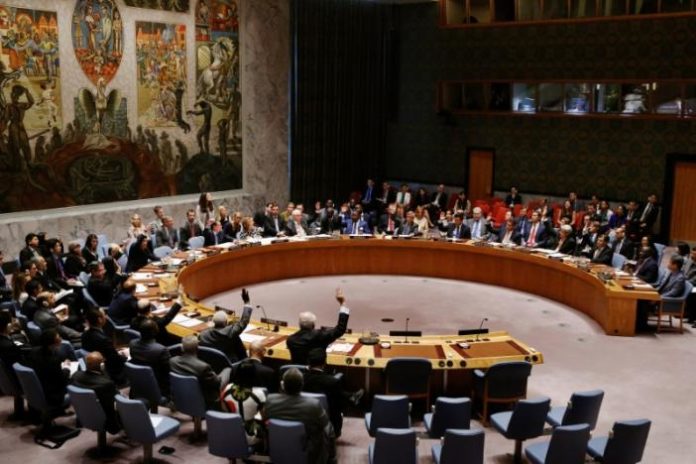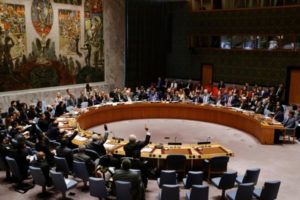On June 15, 2017, United Nations (UN) General Assembly approved the establishment of a new office to help Member States implement the organization’s global counter-terrorism strategy. The new Office would he headed by an Under-Secretary-General.
Following will be the five main functions of new office on counter-terrorism:
- Provide leadership on the General Assembly counter-terrorism mandates.
- Enhance coordination and coherence across the 38 Counter-Terrorism Implementation Task Force entities to ensure the balanced implementation of the four pillars of the UN Global Counter-Terrorism Strategy.

- Strengthen the delivery of United Nations counter-terrorism capacity-building assistance to Member States.
- Improve visibility, advocacy and resource mobilization for United Nations counter-terrorism efforts
- Ensure that due priority is given to counter-terrorism across the United Nations system and that the important work on preventing violent extremism is firmly rooted in the strategy.
Existing Counter-Terrorism Implementation Task Force Office (CTITF) and the UN Counter- Terrorism Centre (UNCCT), currently in the UN Department of Political Affairs (DPA) will be transferred to the new office, together with their existing staff and all associated regular and extra-budgetary resources.
India Wins Re-Election To UN Organ On Economic, Social Issues
On June 15, 2017, India won re-election To UN’s Economic and Social Council (ECOSOC).
- India has been re-elected for a three-year term beginning January 1, 2018.
- India obtained 183 votes, the second highest after Japan in the Asia Pacific category.
- Including India, 17 other nations won election to the Economic and Social Council (ECOSOC).
- Belarus, Ecuador, El Salvador, France, Germany, Ghana, Ireland, Japan, Malawi, Mexico, Morocco, Philippines, Spain, Sudan, Togo, Turkey and Uruguay are the other nations who have been elected for the three- year term beginning January 1, 2018.
About Economic and Social Council (ECOSOC):
ECOSOC is one of the six main organs of the United Nations.It is the principal body for coordination, policy review, policy dialogue and recommendations on economic, social and environmental issues, as well as for implementation of the internationally agreed development goals.
- ECOSOC’s 54 member Governments are elected by the General Assembly for overlapping three-year terms.
- Seats on the Council are allotted based on geographical representation with fourteen allocated to African States, eleven to Asian States, six to Eastern European States, ten to Latin American and Caribbean States, and thirteen to Western European and other States






